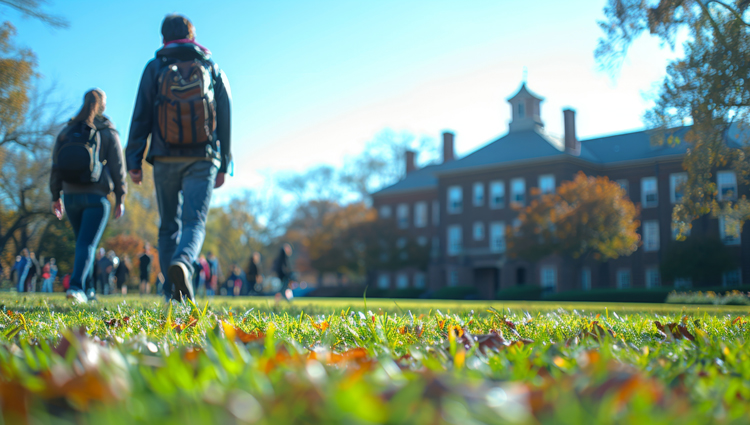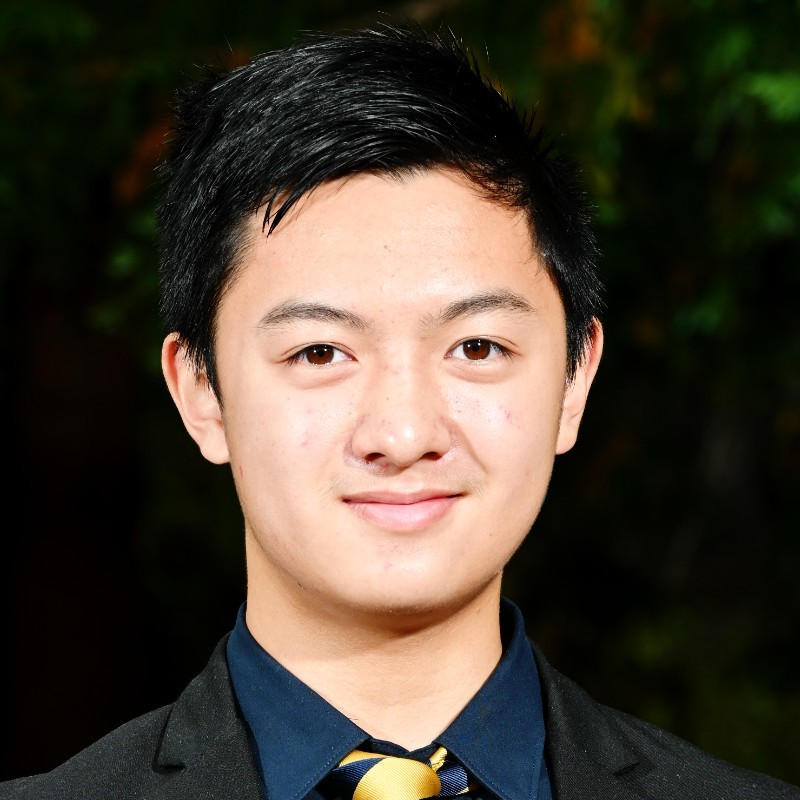Nearly a year ago, I found myself sitting in a 200-seat lecture hall at the University of Pennsylvania for New Students Orientation, still awestruck by my admission to one of America’s most elite, competitive universities. I was so excited to have the freedom to take what seemed to be an endless stream of interesting classes and to build lifelong friendships. As the orientation leaders described the various affinity groups on campus—organizations for Black students, Asian students, and many others—I began to wonder what it might mean for me to call this campus my home for the next four years.
The Search for Belonging and Faith on Campus
The first step to making Penn feel like home, I knew, would be connecting with opportunities to deepen and articulate my faith. For Christians, belonging to a local church is essential, but so is bringing our convictions into public life—what we call our witness. Universities pride themselves on being places where ideas can be freely exchanged and examined, yet my first year at Penn revealed a persistent gap: Christian perspectives were rarely welcomed into the university’s intellectual core.
A Cultural Imbalance in the University Environment
This is not a matter of individual students failing to speak up. Rather, it reflects a structural and cultural imbalance. Many of my Christian peers live their faith with great sincerity in personal and church contexts, but hesitate to engage openly in classroom discussions, student publications, or public forums.
The Chilling Effect on Christian Expression
This is not without reason. The prevailing institutional climate often discourages religious expression through both subtle and overt means—what might be called a “chilling effect.” Students see peers punished socially or academically for voicing views that depart from dominant campus ideologies, and they learn to self-censor.
Ideological Imbalance in Higher Education
Part of this challenge is ideological. At most American universities, the political spectrum skews sharply progressive. According to the Foundation for Individual Rights and Expression’s (FIRE) 2024 report, liberal students outnumber conservative students 8-to-1. Regarding faculty, as Shields finds, “the ratio of Democrats to Republicans at Williams College is 132:1; at Swarthmore it is 120:1; and at Bryn Mawr it is 72:0. At many of America’s best research universities, the ratios are only moderately better.” These imbalances limit exposure to diverse viewpoints and create environments where certain perspectives—especially religious ones—are presumed marginal or irrelevant before they are even heard.
Democrats to Republicans at Williams College is 132:1; at Swarthmore it is 120:1; and at Bryn Mawr it is 72:0
Faith Diversity and Institutional Representation
Not only do institutions like Penn have a general progressive bent, they also have a faith breakdown that does not reflect the religious demography or disposition of America. According to Brandeis University, forty percent of Penn students identify as atheist, agnostic, or “nothing in particular,” while roughly thirty percent identify as Christian. While these numbers may appear balanced enough to avoid concern, they fail to account for the deeper institutional question: Is the university’s culture actively creating space for Christian perspectives to be expressed, engaged with, and respected? By Penn’s own reasoning in the affirmative action debates, diversity is not just about demographic representation; it is about fostering trust with communities through intentional inclusion of their voices.
Applying Diversity Principles Consistently
For example, as Students for Fair Admissions v. Harvard, the Supreme Court case that ultimately overturned race-conscious affirmative action programs, made it through the courts, Penn argued in an amicus brief, “student body diversity enhances the positive impact institutions of higher education can make in the world, as a diverse student body becomes a diverse group of alumni who will participate in, and be trusted by, a broader range of communities.” In other words, elevating underrepresented voices builds institutional trust amongst a broader range of communities and equips graduates to serve those communities. True student body diversity isn’t merely a proportionate measure of students from different groups, but a larger institutional, cultural ethos that would cause people to trust higher education. This logic is sound—but it must be applied consistently. If higher education genuinely seeks to rebuild trust with evangelical and religiously conservative communities, it must take proactive steps to ensure that Christian voices are not merely tolerated, but welcomed as an essential part of the intellectual community.
Why True Diversity Must Include Faith
If universities fail to act, they risk further alienating a significant portion of the American public and undermining the very trust they claim to value. If they succeed, they will not only honor their stated commitments to diversity and inclusion, but also enrich the intellectual life of their campuses with perspectives that have shaped civilizations, inspired movements for justice, and continue to offer profound insight into the human condition.
Restoring the Christian Voice in Academia
True diversity demands more than demographic variety—it requires a culture where all voices, including Christian ones, can speak and be heard. The academy will only fulfill its highest mission when it recognizes that the Christian intellectual tradition is not a relic of the past, but a living contributor to the common good.



testing